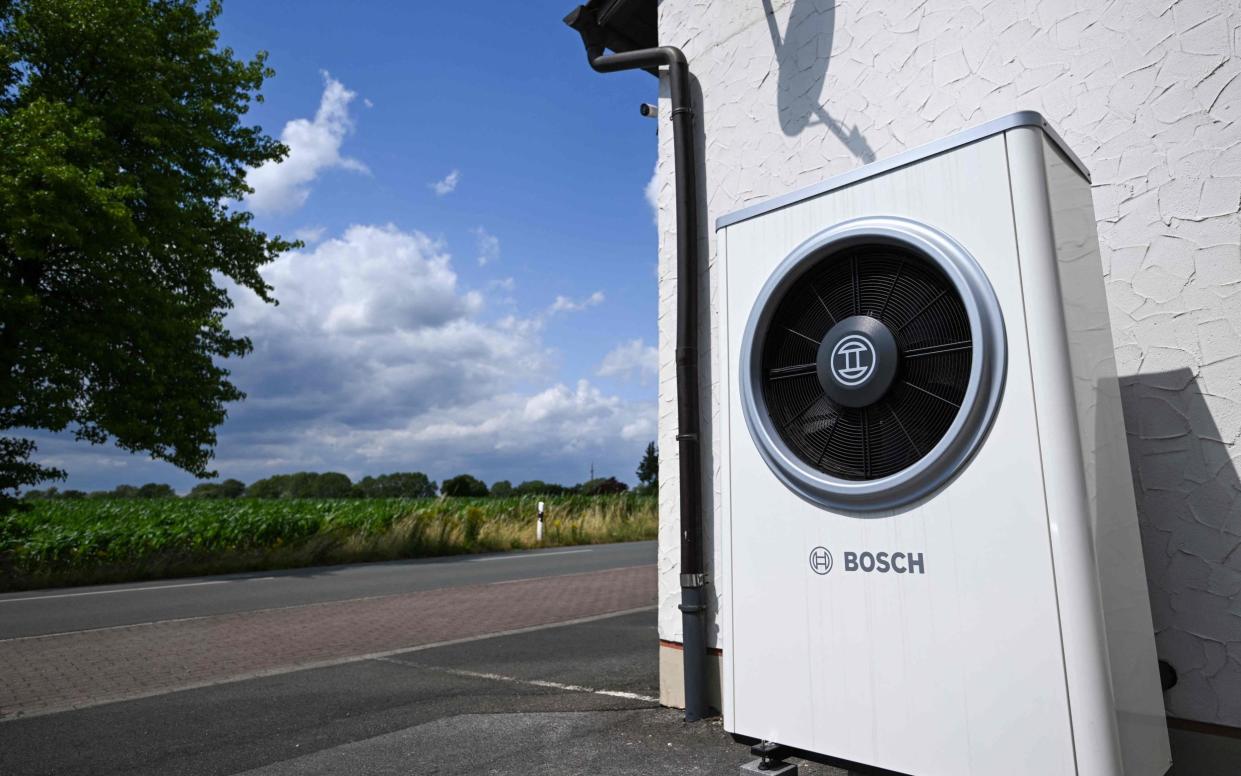Britain shuns ‘patriotic’ heat pumps with subsidies worth £173m left unclaimed

Heat pumps are still getting a cool reception from homeowners with £173m in potential grants remaining unclaimed as the scheme reaches its second anniversary, according to data from Ofgem the energy regulator.
The Boiler Upgrade Scheme set up two years ago has issued just £127m in grants – despite having £300m on offer to persuade householders to ditch gas boilers in favour of low-carbon home heating.
An Ofgem spokesman said that 22,307 households had been given the grants in the 23 months to March. That compares with a target of about 55,000. The figure will rise only slightly when the latest figures are added this week.
The boiler upgrade scheme was introduced in May 2022 as a way of reducing the 68 million tonnes of CO2 emitted annually from home heating – about 18pc of UK emissions.
Most of those emissions come from the 25 million homes fitted with gas-fired boilers and another 2 million using oil-fired heating. The aim is to move all of them to low-carbon heating systems such as air source or ground source heat pumps which work by extracting heat from the environment.
Responsibility for the scheme rests with the Department for Energy Security and Net Zero (Desnz) which initially offered householders grants of up to £5,000 to replace fossil fuel boilers with heat pumps.
However heat pump installations typically cost between £10,000 and £15,000, whereas replacing gas boilers costs £2,000 to £4,000. It meant that, even with the grants, heat pumps remained expensive and uptake was low.
Just 18,900 heat pumps were installed between May 2022 and December 2023 under the scheme, less than half of the 50,000 installations that had been expected.
By contrast about 1.5 million new gas-fired boilers were installed, mostly to replace worn-out models, even though homeowners could have chosen heat pumps instead.
It comes as a think tank claimed that households with insulation, heat pumps and electric cars were more “energy patriotic” because they rely far less on imported fuels.
Analysis from the Energy and Climate Intelligence Unit (ECIU) found homes using heat pumps, insulation and electric vehicles make more use of British energy and use less than half the imported fuel of a household reliant on gas and petrol.
Last September Rishi Sunak announced that he was increasing the grants from £5,000 to £7,500 per household, hoping this would cause an increase in applications. Ministers say that since the increase, applications have soared by 75pc.
Lord Callanan, Minister for Energy Efficiency and Green Finance, said: “Demand for heat pumps is soaring, as we make it easier than ever to make the switch to electric heating without big upfront costs.
“Our boosted £7,500 grants are helping people create a warm home and lower their emissions. And with applications up 75pc, it’s clear our approach is hugely popular with many families.” However, Ofgem’s data suggests the response remains weak.
It shows that of the 35,741 applications received, only 24,709 had been approved and of those only 22,307 had been implemented. Ofgem said this was partly because of lags in the system but also because many applications had failed to gain approval.
Even if there is a surge, the original £150m overall cap on the scheme remains unchanged. This means the number of households able to claim the grants each year has actually gone down from 30,000 a year to 20,000.
Greg Jackson, founder of Octopus Energy said: “Heat pumps are about four times more efficient than old-fashioned gas boilers but the UK is way behind other countries. As we ramp up the scale of the industry, costs will continue to fall.”
Others disagree. The Energy and Utilities Alliance (EUA), which represents the manufacturers and installers of boilers, heat pumps and other heating systems, has warned that heat pump prices are unlikely to fall significantly.
Last month The National Audit Office (NAO) found that 27 times more gas boilers were installed in homes in 2022 as taxpayer-funded subsidies failed to spur demand.
That compares with the Government’s declared target of persuading 600,000 households a year to switch to heat pumps by 2028.
In a statement Desnz said: “With the right support – like the 50pc increase in heat pump grants – families can make their homes warmer and cut their emissions without breaking the bank.”

